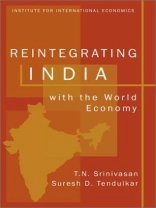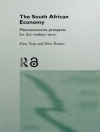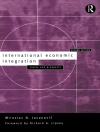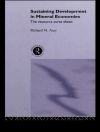After nearly five decades of insulation from world markets, state controls, and slow growth, India embarked in 1991 on a process of liberalization of controls and progressive integration with the global economy in an effort to put its economy on a path of rapid and sustained growth. Despite major changes in the government since then, the thrust on reforms has been maintained. According to the World Bank, only 10 out of 145 countries had more rapid growth than India at over 6 percent per year in the 1990s and two had the same as India’s.
In this study, T. N. Srinivasan and Suresh D. Tendulkar analyze the economics and politics of India’s recent and growing integration with the world economy. They argue that this process has to be nurtured and accelerated if India is to eradicate its poverty and take its rightful place in the global economic system.The study covers the historical roots and the political economy of India’s late integration; domestic and external constraints on integration; external capital inflows including foreign direct investment; and India’s emerging comparative advantage in the information technology industry and services, particularly computer software. The final chapter offers policy recommendations including proposals that India could make at the ongoing Doha Round of multilateral trade negotiations.
关于作者
T.N. Srinivasan is an Indian economist who since 1980 has taught and worked in the United States. He is the Emeritus Samuel C. Park, Jr. Professor of Economics at Yale University. He was formerly chairman of the department of economics. He was a special adviser to the Development Research Center at the World Bank from 1977 to 1980, and has taught at numerous academic institutions over the past four decades, including MIT, Stanford University, and the Indian Statistical Institute.Suresh D. Tendulkar was an Indian economist and former chief of National Statistical Commission. Tendulkar was a member of the Prime Minister’s Economic Advisory Council (PMEAC) from 2004 to 2008 and as its chairman from 2008 to 2009 when C. Rangarajan vacated the post to enter the Rajya Sabha.












